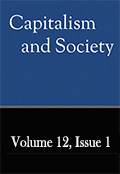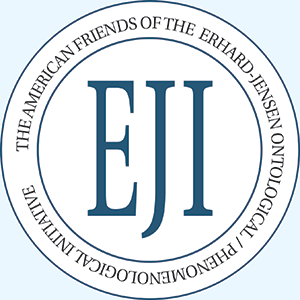 Putting Integrity Into Finance: A Purely Positive Approach
Putting Integrity Into Finance: A Purely Positive Approach
by Werner Erhard and Michael C. Jensen
The seemingly never-ending scandals in the world of finance, accompanied by their damaging effects on value and human welfare, make a strong case for an addition to the current paradigm of financial economics. We summarize here our new theory of integrity that reveals integrity as a purely positive phenomenon with no normative aspects whatsoever. Adding integrity as a positive phenomenon to the paradigm of financial economics provides actionable access (rather than mere explanation with no access) to the source of the behavior that has resulted in those damaging effects on value and human welfare, thereby significantly reducing that behavior. More generally we argue that this addition to the paradigm of financial economics will create significant increases in economic efficiency, productivity, and aggregate human welfare. Because integrity has generally been treated as a virtue (a normative phenomenon) the actual cause of the damaging effects of out-of-integrity behavior are hidden, resulting in assigning false causes to those effects. This keeps the actual source of these damaging effects invisible to us. As a result, in spite of all the attempts to police the false causes of these damaging effects, the out-of integrity actions that are the source of these effects continue to be repeated. This new model of integrity makes the actual source of the damage available for all to see, and therefore to act on. Integrity as we define it (or the lack thereof) on the part of individuals or organizations has enormous economic implications for value, productivity, and quality of life. Indeed, integrity is a factor of production as important as labor, capital, and technology. Without a clear, concise, and most importantly, an actionable definition of integrity, economics, finance and management are far less powerful than they can be.
Read the paper Putting Integrity Into Finance: A Purely Positive Approach published by the Journal of the Center on Capitalism and Society
Earlier working paper versions of the article are available at The National Bureau of Economic Research at: http://www.nber.org/papers/w19986
European Corporate Governance Institute at: https://ecgi.global/working-paper/putting-integrity-finance-purely-positive-approach
Creating Leaders: An Ontological/Phenomenological Model
“How does one teach leadership in a way that not only informs [students] about leadership but also transforms them into actually being leaders?”
That is the question asked by the editors in the introductory chapter of the book “The Handbook for Teaching Leadership: Knowing, Doing, and Being”. In this paper (which appears as Chapter 16 in that book) the authors define a new approach to creating leaders; an approach that focuses on the being of being a leader and the actions of the effective exercise of leadership.
Read more about Creating Leaders: An Ontological/Phenomenological Model.
Integrity: A Positive Model that Incorporates the Normative Phenomena of Morality, Ethics, and Legality – Abridged
by Werner Erhard, Michael C. Jensen and Steve Zaffron
We present a positive model of integrity that, as we distinguish and define integrity, provides powerful access to increased performance for individuals, groups, organizations, and societies. Our model reveals the causal link between integrity and increased performance, quality of life, and value-creation for all entities, and provides access to that causal link. Integrity is thus a factor of production as important as knowledge and technology, yet its major role in productivity and performance has been largely hidden or unnoticed, or even ignored by economists and others.
Read the paper Integrity: A Positive Model that Incorporates the Normative Phenomena of Morality, Ethics, and Legality – Abridged Integrity: A Positive Model that Incorporates the Normative Phenomena of Morality, Ethics, and Legality – Abridged
Conversations on Compassion with Werner Erhard
The Center for Compassion and Altruism Research and Education, Stanford University
In this dialogue in November 2017, CCARE’s founder and director, Dr. James Doty, talks with Werner Erhard about his life’s work and how compassion has played a role.
Four Ways of Being that Create the Foundations of A Great Personal Life, Great Leadership and A Great Organization
By Werner H. Erhard and Michael C. Jensen
In this paper we argue that the four ways of being we identify as constituting the foundation for being a leader and the effective exercise of leadership are also the foundation for an extraordinary organization and the foundation of an extraordinary personal life. We start with a brief overview of each of these four foundations before going into an expanded discussion of each.
Read more about The Four Ways of Being http://ssrn.com/abstract=2325077
Sands Leadership Lecture Series
Simon Business School – University of Rochester
Professor Michael Jensen and Werner Erhard, two extraordinary thinkers, engage in a conversation that explores groundbreaking access to being a leader and to the effective exercise of leadership as one’s natural self-expression.
Why We Do What We Do: A New Model Providing Actionable Access to the Source of Performance.
Harvard University Kennedy School Center For Public Leadership, December 14, 2009
A New Model of Integrity: The Missing Factor of Production
Michael C. Jensen, Werner Erhard and Kari Granger
An Actionable Pathway To Dramatic Increases In Individual And Organizational Performance
Full Day Workshop taught at Olin School, Washington University, St. Louis, MO, USA
Workshop Objectives:
To provide you and your organization(s) an unambiguous and actionable access to the causal link between integrity and superior performance, quality of life, value creation and competitive advantage.
Read the PDF Keynote and Powerpoint slides on A New Model of Integrity
Integrity: Without it Nothing Works
Interview of Michael Jensen by Karen Christensen on the topic of integrity for Rotman Magazine
There is confusion between integrity, morality and ethics. In our much longer (and as yet incomplete) paper on the topic (see “Integrity: A Positive Model that Incorporates the Normative Phenomena of Morality, Ethics and Legality” (available at http://ssrn.com/abstract=920625)) my co-authors, Werner Erhard and Steve Zaffron and I, distinguish integrity, from morality and ethics in the following way. Integrity in our model is honoring your word. As such integrity is a purely positive phenomenon. It has nothing to do with good vs. bad, right vs. wrong behavior. Like the law of gravity the law of integrity just is, and if you violate the law of integrity as we define it you get hurt just as if you try to violate the law of gravity with no safety device. The personal and organizational benefits of honoring one’s word are huge — both for individuals and for organizations — and generally unappreciated.
Read more about Integrity: Without it Nothing Works
